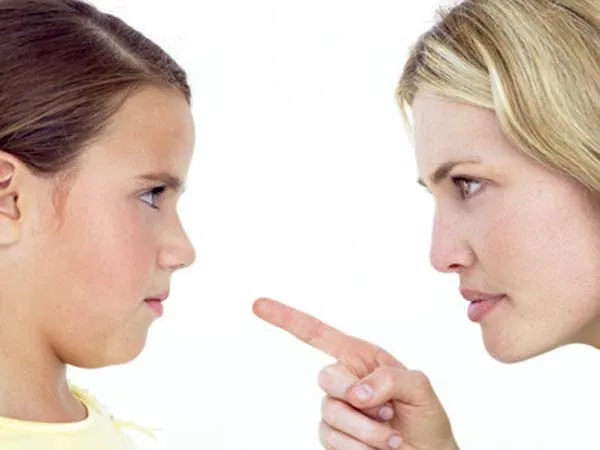As a rule, parents are very concerned about their children's bad behavior or the deterioration of their school performance, and express their fear in a negative way, in particular, they begin to blame themselves for everything.

Source
If problems continue, parents blame other people or organizations. They blame the teachers who cannot handle their child. And when a child grows up, parents blame their friends or the neighborhood for the music they listen to. When a child becomes a young adult, they blame drugs, alcohol, or the low culture of society.
But a truly troublesome situation arises when a child is found to have a serious conduct disorder; then everyone starts to blame each other.
Parents blame the teacher, the teacher blames the parents, the child blames both the teacher and the parents, and all of this happens over and over again. Many parents simply do not help their children in any way.
But all too often these and other questions are used by parents as an excuse to justify their child's lack of academic or behavioral development, it becomes an incredibly difficult habit to break.
Parents literally get addicted to blaming others. After all, it is easier to fight a school than a child with a behavior disorder.
It is important for parents to remember to focus on the child herself!
The main problem with excuses is that they do not help the child learn to manage herself or act correctly. Accusations make it difficult for parents to look objectively at their son or daughter.
Parents undoubtedly have every reason to fear for children who have behavior problems or learning difficulties. Life is demanding and you start making these demands very early.
Guilt and excuse go hand in hand and prevent parents from realizing that regardless of the initial conditions, no matter the severity of the problem, all children must learn to behave in a socially acceptable way.
You must learn to solve problems and interact socially. It is true that there are cases in which some children find it more difficult to learn than others and it takes them longer. But that shouldn't be an excuse
Excuses and more excuses: what is your child's?

Source
Children should not be allowed to blame other people, places, or situations for not meeting expectations or completing a task.
In fact, when a child blames someone else. For example, by using the classic phrase "My brother broke my homework," you are looking to blame, avoiding responsibility.
Rest assured, children who see themselves as victims of circumstance and are allowed excuses find it very difficult to meet the complex developmental demands of life at an early age.
When children try to present themselves as victims to their parents or teachers, they need to be told: “Blaming someone else will not solve your problem. You have to complete your homework at the end of the day, otherwise you will get a bad grade. "
The problem is not guilt, but responsibility.

Source
When kids focus on excuses and more excuses, parents need to focus on responsibility. Of course, some excuses are legitimate and it is the parent's responsibility to distinguish between real excuses and excuses. But children use many excuses for simply not fulfilling their responsibilities. The child often wants to shift the emphasis from responsibility to justification, and parents must turn this emphasis from pretext to responsibility.
"We are not talking about who is to blame, we are talking about who is responsible for the performance of their duties."
If you start arguing with your child about excuses and excuses, then you involuntarily encourage her to come up with more and more reasons and improve her ability to make excuses. So advice to parents: don't argue, focus on responsibility.
Reference:

Supports the educational community